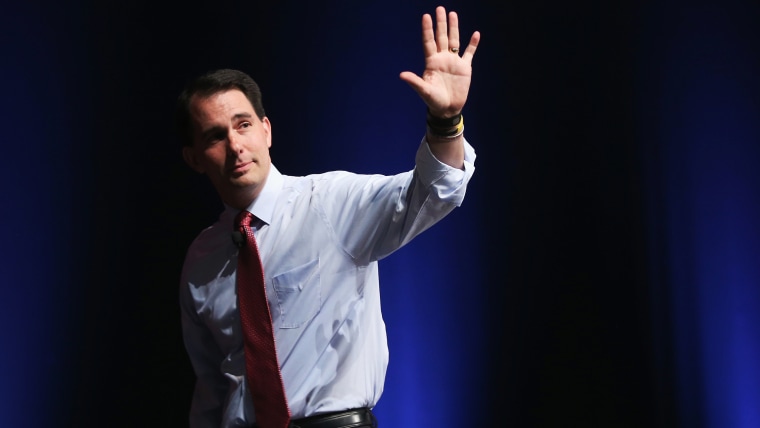Only one year in, journalists and watchdogs began uncovering evidence of mismanagement in WEDC. After filing open records requests in 2012 to scrutinize the agency's first year of operations, the Milwaukee Journal Sentinel learned that WEDC had lost track of much of their initial $56 million loan portfolio. The agency was discovered to have understated, by about a third, the amount of money it had loaned out to companies that had fallen behind on repayments. And a pattern began to emerge: two loans totaling some $5 million had gone to two timber companies, Flambeau River Papers and Flambeau River Biofuels, both run by William "Butch" Johnson, a donor to Walker's campaign. [...] Moreover, the agency's expense account turned out to be full of nuggets: WEDC had bought six season tickets to University of Wisconsin football games for the governor's office. They expensed booze for meetings with WEDC contractors, train tickets in China and meals in India for the agency director's family, and iTunes gift cards for agency staff.
Jobs-council controversy dogs Wisconsin's Walker
The Wisconsin Economic Development Corporation may sound like a boring, bureaucratic name, but for Scott walker, the controversy is anything but routine.

As a gubernatorial candidate in 2010, Wisconsin's Scott Walker (R) made a public vow that, in retrospect, was unfortunately specific: elect him and he'd create 250,000 jobs in his first term. It could serve, above all else, the Republican said, as a metric for his job performance.
By his own standard, Walker failed spectacularly, and Wisconsin struggled to get halfway to the governor's goal during his first four years, reinforcing suspicions that his entire approach to economic policy is simply wrong. But looking ahead, the more salient problem isn't Walker's inability to deliver on his promise, but rather, the questions surrounding the far-right governor's jobs council, created to help him try to reach his own goal.
Shortly after Walker took office, state policymakers created the Wisconsin Economic Development Corporation, or WEDC, with Walker personally chairing its board. The idea was to create an entity that could quickly and efficiently, with minimal red tape, extend grants, loans, and tax credits to the private sector, cultivating state job growth.
Obviously, the idea didn't work, though as TPM reported last week, failure is just the tip of the iceberg.
When the Wisconsin Supreme Court ended the inquiry into Walker's campaign-finance scandal, the Republican presidential hopeful very likely assumed his national campaign could move forward, controversy-free. The questions surrounding the WEDC, however, are arguably even more serious -- and they're not going away.
If the WEDC had played a role in Walker's failed economic promises, it'd simply be an embarrassment. But the mess surrounding the governor's job-creation council is far broader in scope and scale -- the WEDC mismanaged public funds, directed resources to Walker's campaign supporters in ways that have proven hard to defend, and doled out cash with no meaningful oversight.
Making matters even worse, the governor's council seems to have extended support to businesses without any due diligence, which meant occasionally providing money to firms facing criminal scrutiny for alleged fraud. In one instance, the WEDC gave out $124 million in taxpayer money without any review at all.
Asked for an explanation last week, the GOP presidential candidate told reporters that critics of the council are talking "about cases that happened four years ago." He added, "They put in place many positive reforms since then."
It was a curious response. First, by referring to the WEDC's leadership as "they," Walker appears to be distancing himself from his own work in a misleading way -- the governor was not only the WEDC's chairman, he handpicked much of the WEDC's board of directors. It's more a "we" than a "they."
Second, cases "that happened four years ago" count -- Walker has been in office for five years, and he's currently seeking national office on the strength of his record. Failure and mismanagement on the governor's top priority can't be dismissed quite so easily.
And finally, the defense isn't quite true. Some of the WEDC's controversies involve highly dubious investments from 2015.
Yes, Walker recently stepped down from his role as chairman of the development council, but the move came just last week. In other words, the Republican governor is still on the hook for the agency's many, many controversies.
The list of incidents that have drawn scrutiny is too long to include here, but for more information on some of the more notable controversies, follow the links to reporting on the WEDC's assistance to the Building Committee Inc. (BCI), Green Box, and Eaton Corp.
"There has been a lot of chaos," state Sen. Julie Lassa, a Democrat and Walker critic who serves on WEDC's board, told msnbc in May.
That's true, and it's already the fodder for some pretty effective negative ads.